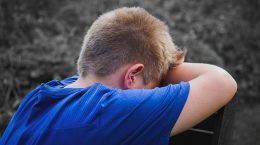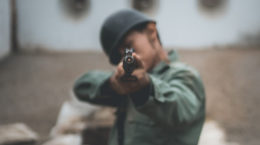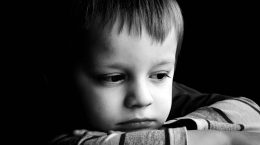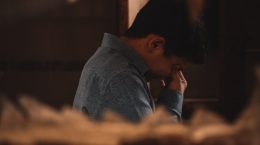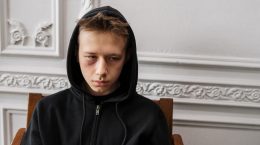Orphans in prisons are even more powerless than ordinary prisoners. There is no one to stand up for them, they have no relatives who will bring the package, write a letter and send money. And no one fights for them, and certainly the status of an orphan is not mitigating. We will tell you more about the situation with orphans sentenced under Article 328 in Belarusian prisons.
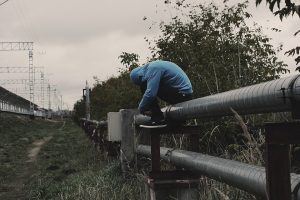 Orphans are persons under 18 years of age who have lost both or their only parent; Children without parental care – persons under 18 years of age who have been left without the care of their only or both parents because their parents were deprived of parental rights, taken away from them without deprivation of parental rights, declared legally incompetent, partially or permanently absent, declared dead, wanted or in detention facilities, or because their parents are ill, Parental consent to adoption, parents’ separation from their children, parents serving a sentence in an institution for the enforcement of sentences involving arrest, restriction of liberty or deprivation of liberty, parents leaving them in health-care facilities, parents’ consent to the adoption of children, and parents living separately with their children, and parents found abandoned, and in other cases where they have no parental care.
Orphans are persons under 18 years of age who have lost both or their only parent; Children without parental care – persons under 18 years of age who have been left without the care of their only or both parents because their parents were deprived of parental rights, taken away from them without deprivation of parental rights, declared legally incompetent, partially or permanently absent, declared dead, wanted or in detention facilities, or because their parents are ill, Parental consent to adoption, parents’ separation from their children, parents serving a sentence in an institution for the enforcement of sentences involving arrest, restriction of liberty or deprivation of liberty, parents leaving them in health-care facilities, parents’ consent to the adoption of children, and parents living separately with their children, and parents found abandoned, and in other cases where they have no parental care.
Orphans and children without parental care are persons aged between 18 and 23 who, by the time they reach the age of 18, had the status of orphans or children without parental care or the grounds for its acquisition and have not subsequently lost these grounds.
These are children with a terrible fate, a crippled psyche and, often, children burdened with various ailments and health problems associated with genetic and hereditary factors. This is a category of citizens that requires special attention and protection.
Guarantees of the social protection of orphans, children without parental care and persons from among orphans and children without parental care are measures established by the State for the social protection of orphans, children without parental care and persons from among orphans and children without parental care, aimed at protecting their rights and legitimate interests and serving to ensure conditions for their full development, upbringing, education, health promotion and preparation for independent life in society.
State support – a set of measures established by the state aimed at material provision of conditions for the realization of basic rights and satisfaction of the vital needs and requirements of orphans, children left without parental care, as well as persons from among orphans and children left without parental care.
Problems of orphans-328 in prisons in Belarus
Unfortunately, all problems that concern children-328 also apply to orphans convicted under Art.328 of the Criminal Code of the Republic of Belarus.
- An orphan child convicted under article 328 of the Criminal Code of the Republic of Belarus, falling into the category of a stumbled, breaking the law, is immediately and automatically deprived of all his rights and social guarantees, despite all the numerous benefits and guarantees for the social protection of orphans provided for by the legislation of the Republic of Belarus.
- Even at the time of sentencing, orphan status is not a mitigating circumstance.
- According to Belarusian legislation, a convicted person is obliged to pay legal claims and legal costs. Where can a minor orphan get money for repayment? As a rule, he has no money, which means that an orphan child is automatically deprived of the right to amnesty, as a convicted person who has not paid off lawsuits and costs. The child is left alone and without the right to leave early. Why doesn’t the state take responsibility for compensating these costs?
- In addition to the general problems associated with detention in places of deprivation of liberty, juvenile orphans, instead of privileges, on the contrary, have continuous restrictions. Since visits, “care” packages and medical parcels are allowed only to close relatives (and where to get an orphan of these close relatives?), It turns out that the possibility of providing assistance and receiving (food and clothing) orphan is excluded. Therefore, even if there are not indifferent citizens who are ready to send clothes, food, medicine to convicted orphans, to come to visit with the purpose of communication and support, this is simply prohibited. Please note that, given the poor detention in places of deprivation of liberty, it is almost impossible to survive without support. But the primary task of the penitentiary system is the correction of the convict, which is the process of eliminating an antisocial orientation from a person. How is this possible when an orphan in this situation has no outside help and any social contacts are suppressed by the state? Minor orphans in prisons are allowed to send only a small amount of money, and in this situation, the underage orphan finds itself in discriminatory conditions compared to other children who have parents or close relatives.
- In the future, the convicted person, including the orphan, who has firmly taken the path of correction, has the right to replace the regime with a softer one with transfer for further serving the sentence to an open-type correctional institution – to “chemistry”. In fact, for an underage orphan-328, it is almost impossible, since staying on chemistry presupposes complete self-sufficiency. In reality, given the fact that for the most part for convicts, due to certain circumstances, vacancies for decent employment are very modest, especially in terms of wages, it is extremely difficult for an orphan-328 without additional support to feed oneself, put shoes and clothe on and, which is obligatory, pay utility living expenses for “chemistry”. Accordingly, many orphans are forced to give up the possibility of replacing punishment with a softer one. And in terms of resocialization of convicts, it is the replacement of the regime with a milder one that is an important step on the path to freedom.
- Deprivation of housing for underage orphans-328. As orphans-328 taken into custody as minors, even when they have a dwelling, have never had time to enter into property rights, as according to the law this is only possible at the time of majority. To carry out this procedure while in prison, it is required, firstly, a close relative who is ready to deal with this issue (the orphan does not have it), and secondly, the financial means to pay for the work of a notary (the orphan does not have money). Again a vicious circle, from which there is no way out for an underage orphan-328. Thus, the orphan loses the right to inheritance or ownership and loses housing. The next important point concerns the payment of utilities for the living space available to the orphan as an owner. An orphan sentenced to a long term is not able to pay utility bills at the place of registration, therefore, at a certain moment, the orphan is automatically deprived of his home for utility debts. And yet, an orphan without living space under the law up to 23 years old can claim to improve their living conditions, but in most cases, orphans are convicted under Art.328 of the Criminal Code of the Republic of Belarus for long periods (for 10 or more years) and at the time of release will automatically be deprived of such an opportunity. Moreover, these children, having no housing at the time of their release from prison, officially acquire the status of homeless people (without a definite place of residence) or homeless, which also does not contribute to their socialization in society.
Based on the foregoing, we, as the mothers of the Children-328 initiative of “Nash Dom”, demand:
- When passing a sentence, take into account the status of an orphan and use this fact as a mitigating circumstance.
- Compensate for all legal claims and costs to orphans at the expense of the state.
- Remove restrictions on the possibility of providing assistance to convicted orphans.
- Introduce changes on the provision of subsidized housing for orphans released from places of imprisonment.
- Release orphans from paying utility bills at the place of registration while in prison.
- To simplify the procedure for entering into the inheritance rights of orphans who have reached the age of majority, who are serving a sentence. Protect their inheritance rights.
- Guarantee subsequent employment.
Provide material support to orphans released from places of imprisonment, within the framework of the program of re-socialization of convicts.


